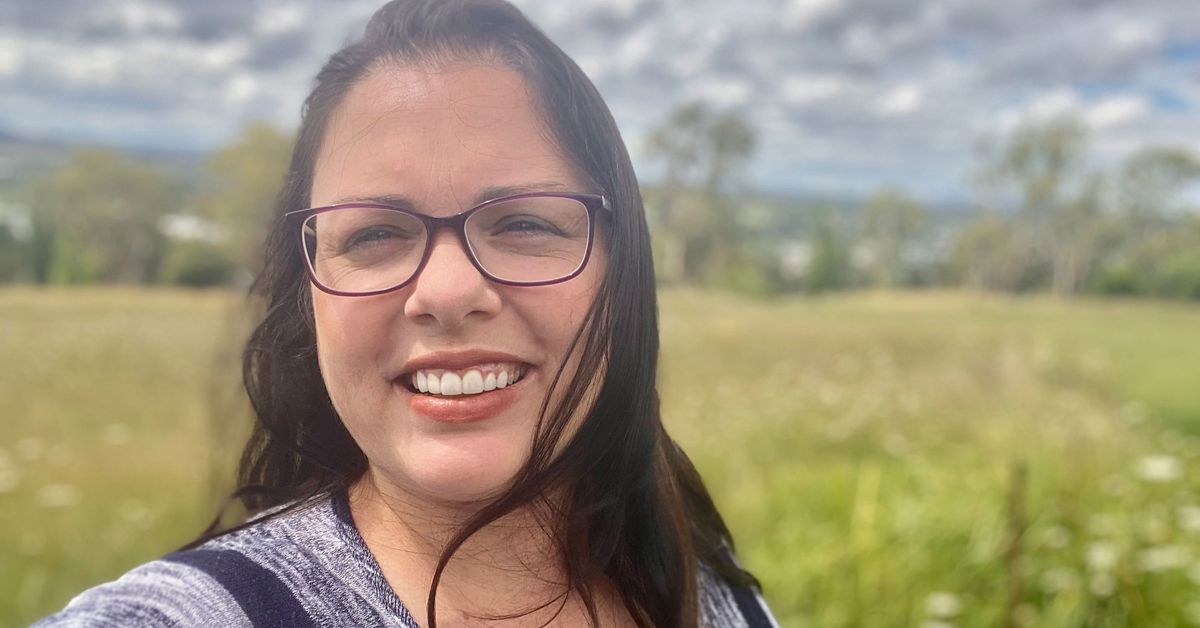Six years ago, Raphaella Kathryn Crosby could barely get out of bed.
The NSW newspaper publisher and founder of Migraine Australia suffers from hemiplegic migraines, a rare type of migraine that causes stroke-like symptoms.
“When I get an attack, I can’t walk, I can’t talk, and I lose motor function, usually on the left side of my body,” she told 9news.com.au.
“It usually takes about three weeks to fully recover.
“I went for 10 years without having a single day that was migraine-free.”
 Two migraine medications have given Raphaella Kathryn Crosby her life back, but they come with a steep price tag. (Supplied)
Two migraine medications have given Raphaella Kathryn Crosby her life back, but they come with a steep price tag. (Supplied)
Unable to work or even carry out basic tasks, Crosby said she was reliant on the disability support pension.
“I was completely debilitated,” she said. “I had Home Care come in and get me out of bed and feed me and clothe me and clean my house.”
That all changed in 2019, when Crosby began seeing a new neurologist and was introduced to a new migraine medication Erenumab, which is sold under the brand name Aimovig.
After initially hesitating due to bad reactions to previous medications, Crosby eventually tried it and said she was amazed.
“I was dancing around my living room three days later,” she said.
“Within 14 days, I had my first ‘crystal clear day’… Within six months, I was basically migraine attack-free.”
Crosby has since added another beneficial migraine medication to the mix, Nurtec.
She says the transformation has been profound. From being on a pension, Crosby is now a successful businesswoman who employs 12 people.
But that life-altering change has come with a steep price tag.
Crosby’s two medications are not listed on the Pharmaceutical Benefits Scheme (PBS), forcing her to pay around $1000 a month, with Aimovig being the more expensive at $700 a month.
“It’s more than my rent,” Crosby said.
Drug company Novartis has sought to have Aimovig listed on the PBS four times.
In its last attempt, the Pharmaceutical Benefits Advisory Committee (PBAC) did recommend the drug for patients suffering from 15 or more migraine days a month who had already tried three other medications without success.
However, despite the positive recommendation, negotiations between Novartis and the government stalled.
 Raphaella Kathryn Crosby could barely function six years ago. Now she is a successful businesswoman. (Supplied)The company has since confirmed to 9news.com.au it has chosen not to proceed with the listing, stating that the government’s pricing requirements “did not appropriately value the efficacy and economic benefits” of the medicine.
Raphaella Kathryn Crosby could barely function six years ago. Now she is a successful businesswoman. (Supplied)The company has since confirmed to 9news.com.au it has chosen not to proceed with the listing, stating that the government’s pricing requirements “did not appropriately value the efficacy and economic benefits” of the medicine.
The second drug, Nurtec, which costs Raphaella an additional $270 a month, faces a similar fate. The PBAC considered the drug for listing in March 2024 but did not recommend it due to concerns about its cost-effectiveness compared to existing therapies.
A multi-billion-dollar cost
Crosby, who founded the group Migraines Australia when she began advocating for Aimovig to be added to the PBS back in 2019, said the federal government was overlooking a massive economic opportunity.
“It’s not just about getting a medication so you can deal with the condition,” she said.
“It’s about the government recognising that this medication that doesn’t cost them very much at all gives us back our entire lives.”
According to a 2018 study by Deloitte Access Economics, migraines cost the Australian economy $35.7 billion a year through healthcare expenses and lost productivity.
Of the estimated 4.9 million people in Australia who suffer from migraines, around 430,000 are chronically affected, having 15 days of migraines a month.
Crosby believes that if these drugs had been put on the PBS years ago, the workforce would be significantly larger.
“You take those people off welfare… and you put them back in the workforce where they’re paying tax,” she said. “That’s a huge boost to the underlying revenue of the government for a very small outlay.”
For Crosby, the fight has become deeply personal and frustrating. She is now calling for a Royal Commission into the PBS through a Change.org petition.
“I think the problem with everything about the PBS is that it’s so complicated that people don’t understand what’s going on,” she said.
She argues that the restrictions placed on new drugs are often not based on clinical science, but on saving money in the short term.
“I don’t think it’s fair or right that we are denied affordable access to medication because there’s too many of us.”
A spokesperson for the Department of Health, Disability and Ageing said the federal government is committed to supporting Australians living with migraine and continues to consider new treatment options through the PBS process.
The spokesperson said it was ultimately up to drug companies to seek reimbursement of a medicine on the PBS.
While the Pharmaceutical Benefits Advisory Committee (PBAC) found Nurtec to be modestly more effective than migraine treatments on the PBS, the price requested by drug company Pfizer was too high, the spokesperson said.
Novartis, meanwhile, had not submitted a listing proposal to progress the PBAC recommendation, they said.

